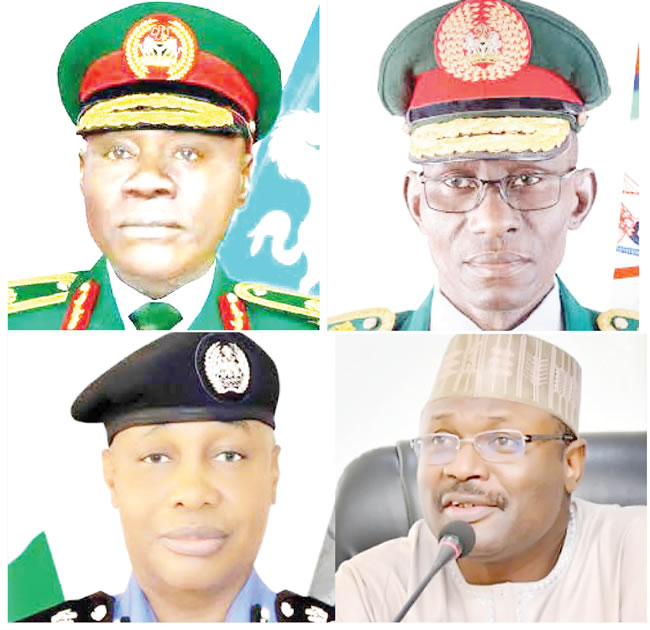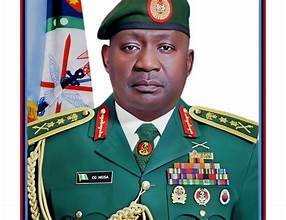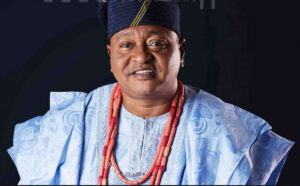TERROR ALERT: Nigeria on edge, 119 days to general election
[ad_1]
The stark realities are here. Nigerians are beset with the grim reality of existential challenges following the terror alert issued by the United States, United Kingdom, as well as other developed countries to their nationals resident in Nigeria. The advisory on high-risk violence raised by those countries has continued to dominate discourse among the majority of Nigerians.
The situation has heightened the already frightening insecurity across the country even as the build-up to general election enters a frenzy, with politicians preoccupied with plotting on how to triumph over opponents at the poll. The 2023 general election proper has been described by an elderstateman and former Secretary General of the Commonwealth of Nations, Chief EmekaAnyaoku, as a watershed in the history of Nigeria. This is particularly so becuase the country is grappling with militancy, kidnapping, insurgency, banditry, armed robbery and terrorism. Yet, it is bogged down by inadequate number of men and officers in the law enforcement agencies with responsibility to ensure law and order in the society. Other critical arms of the security architecture lack the requisite number of personnel based on global standard for effective national security and stability and modern technology to fight crime. It is estimated that The Nigeria Police have an estimated 370,000 personnel to protect more than 200 million citizens, whereas the ratio recommended by the United Nations is 340:100,000 people.
Not too long a time, the security challenge facing the country was further brought to the fore by the Chief of Defence Staff, Lucky Irabor, when he said that 80 per cent of members of the Armed Forces are engaged in 36 states to enforce internal security as opposed to discharging the core statutory duty of safeguarding and/or protecting the sovereignty of the country. Irabor had said: “I’m looking forward to a day when all of us, soldiers, would come back to barracks and engage in core military duties – defending the territorial integrity of our nation… Today, close to 70 to 80 per cent of our troops ‘are’ on the field all year round, and I think we must begin to reshape it.”
Lately, the military top hierarchy claimed the military had recorded success in the fight against insurgency and other violent crimes in the country. For example, the military said it eliminated core terror-leaders in addition to killing more than 250 Islamist militants and others.
Defence spokesperson, Musa Danmadami, said military forces carried out highly successful air bombardments and ground clearance operations in Operation Hadarin Kai between August 25 and September 8, claiming that troops attacked insurgents in isolated villages in North-RastBorno and Yobe states and killed 52 terrorists. He said troops arrested 14 other fighters and rescued 22 hostages, including three “Chibok girls” who were kidnapped by Boko Haram in 2014. Danmadami added that troops even recorded more success during operations in the Bama district of Borno on September 3, when air and land attacks wiped out Boko Haram and Islamist group’s hideouts. He added: “Feedback from various sources reveal that over 200 terrorists were neutralized including five high-profile commanders. Their enclaves were bombarded, the airstrikes resulted in the neutralization of a large number of insurgents, while the land components mopped up the fleeing terrorists.”
The efforts of the military to eliminate criminals have not been limited to fierce battle against the Islamist groups in the North-East; it is also faced with the menace of kidnap-for-ransom gangs active mainly in the North-West and North-Central states as well as the southern parts of the country. But those challenges are being further hampered by the influx of medium and small arms and ammunition into the country. In fact. Nigeria is said to be home to the largest chunk of small arms in the entire West African region.
ALSO READ FROM NIGERIAN TRIBUNE
Some security experts believe the military has succeeded in a way in the fight against the criminals recently. One of such experts is a security analyst, KabiruAdamu, who said: “The last few months, we’ve seen an increase in both the clearance and interdictions operations by the Nigerian security operatives, creating huge blows in the capacity and efficiency of the non-state actors to carry out attacks. There has been progress in that regard.”
Another expert, Patrick Agbambu, acknowledged the bravery and gallantry if the military in taking the battle to the criminals but advised the troops not to relax until they have rooted out the terrorists completely. “It’s cheering news, we give kudos to the security agencies, but I’ll want to urge them to continue because while you’re recording success, the criminals are trying to devise other means.”.
With the benefit of hindsight, world scholar and former Minister of Foreign Affairs, Professor BolajiAkinyemi is unequivocal on the need for the government and politicians to pay critical attention to the implications of the terror alert. He has suggested a halt to the ongoing electioneering because of the security challenges posed by crowded gatherings, which could be explored by criminals to cause havoc.
On his part, Dean, Faculty of Multi-Disciplinary Studies, University of Ibadan, Professor Isaac Olawale Albert, was not surprised by the action of the US and the other countries that issued advisory threat alert to their citizens in Nigeria. According to the don, the international community is worried about the coming elections in Nigeria. He, therefore, tasked Nigerians, especially journalists to take it upon themselves to promote those things that would help the survival and sustenance of Nigeria beyond the elections.
Albert said Africa and indeed the world were waiting to see what becomes of Nigeria with the elections, urging that, as Nigerians, we must work to keep our country afloat. He said: “The international community is disturbed because of the 2023 elections and because of this the Economic Community of West African States (ECOWAS) has called a meeting.”
The Professor of African History, Peace and Conflict Studies said questions such as ‘will 2023 elections hold?’, ‘will it be violent free?’ among others, were agitating the minds of members of the international community and charged journalists and indeed all Nigerians not to allow their reports and actions to worsen the current defective situation in Nigeria. Journalists, he charged, had “a very important role to play” in assuaging the feeling of the international community as the election year approaches.
According to Albert, “politicians will say what they have to say; political parties will say what they have to say” but as journalists and as patriotic Nigerians, they should, through their reportage, sieve these and engage in such a ways as not to escalate the conflict in whatever they say. He advised journalists to “up their conflict-management mechanism” and said they must always be vigilant by asking how their platforms would not be used to burn down any state or Nigeria. He also canvassed that institutions in Nigeria must be made strong and strengthened beyond individuals in the country, saying “rather than build strong individuals, we should build strong institutions that can curtail the excesses of individuals in positions of power,” as according to him, “Nigeria is already on the brink and that the worrisome situation must not be made worse.” Hde said rather than creating tension, Nigerians must devise means of deescalating the tension in the country.
The national chairman of the Independent National Electoral Commission (INEC), Professor Mahmood Yakubu, has repeatedly raised the issue of insecurity as the country prepares for the general election. Though he recognises the fact that the responsibility to guarantee security was outside the core mandate of INEC, he said his commission was synergising with security agencies towards paving the way for the enabling environment to deliver a free, fair and credible elections in 2023.
The frightening state of security also gives much concern to elder statesman, General Theophilus Y. Danjuma, who for the upteenth time, advocated self-defence by citizens in the face of incessant provocation and attacks.
But the Minister of Information and Culture, Alhaji Lai Mohammed has strongly disagreed with the United States and other countries that have issued the terror alert to their nationals resident in Nigeria, especially the ones in living in the Federal Capital Territory (FCTl, Abuja. The minister warned that the Federal Government would not be stampeded by any travel advisory by those countries to their nationals resident in Nigeria.
Interestingly, his view on what he described as the ‘so-called travel advisory,’ and “click baiting,” sharply contrdicts the positions of the Department of State Service and the top military hierarchies which separately spoke on proactive measures they had been involved to stave off virulent and invidious activities of all shadowy groups across the country, including the FCT. Some of the groups are spread huge number of ungovernable spaces in all the six geopolitical zones in the country. This has led to the military adopting various measures to take the menace of insurgency, banditry, oil theft and kidnapping. On October 22, the military commenced three operations in the South-East, South-South and the South-West. The Chief of Army Staff, Farouk Yahaya, who kicked off the exercise said it was part of the move at tackling security challenges throughout the country.
General Lucky Irabor, the CDS, has equally decried the level of security challenges saying that Boko Haram killed 100, 000 people, while the multifaceted battle the military was involved across the country was affecting the finances and workforce. “This has put a strain on our available resources committed to the ongoing counterterrorism and counterinsurgency operations in the North-East,” he said.
Irabor’s submission is underscored by the seeming geometric proportion in the number of states the military had been drafted due to the activities of bandits, terrorists and other unwanted elements in the society. In 2016, the military operations occasioned by the ugly trend were limited to 30 put of the 36 states. It rose to 33 states in November 5, 2020, going by the account given by the chairman, Senate Committee on Army, Senator Ali Ndume. The various devious groups became more daring attacking security infrastructure, convoys of top government officials, as well as killing and kidnapping people of at random.
[ad_2]















Post Comment